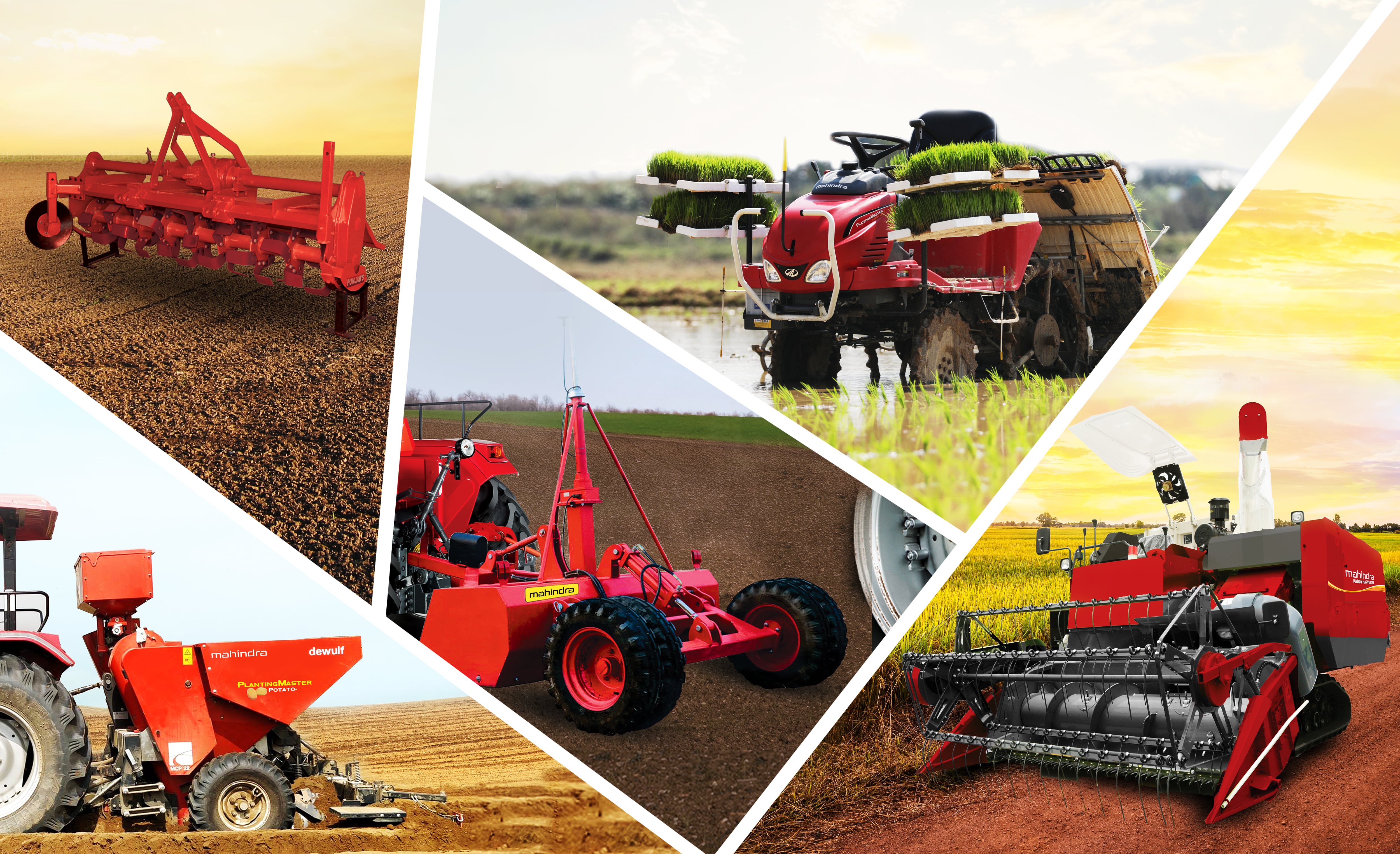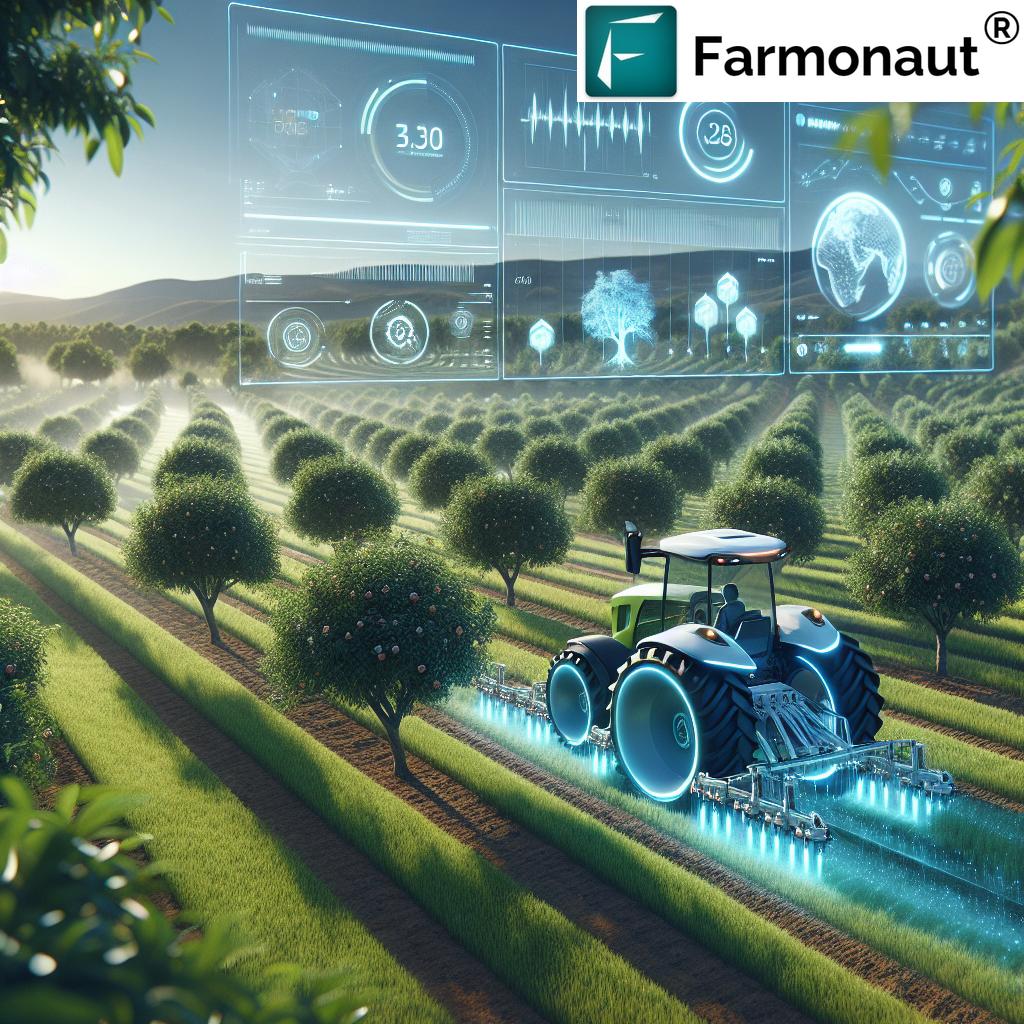Imagine standing on the brink of a technological revolution that promises to reshape the farming landscape. Are you curious about what 2025 holds for agritech machinery?
You’re not alone. As the agriculture industry evolves, so do the tools and technologies that drive it. This year is set to bring groundbreaking innovations that could redefine how you approach farming. From smarter machines that increase efficiency to cutting-edge technology that reduces environmental impact, agritech machinery in 2025 is filled with possibilities.
Dive into this article to discover how these advancements can impact your farm, boost productivity, and contribute to a sustainable future. Your curiosity could lead you to solutions that transform your agricultural practices forever. Are you ready to explore what’s new in agritech machinery?

Precision Farming Advancements
Precision farming is transforming agriculture with cutting-edge technologies. In 2025, advancements in agritech machinery are making it easier for farmers to manage crops effectively. This new wave of innovation focuses on using technology to increase yields, reduce waste, and improve efficiency.
Smart Sensors
Smart sensors are becoming essential tools in modern farming. They provide real-time data on soil moisture, temperature, and nutrient levels. Farmers can make informed decisions based on accurate data. This helps in optimizing irrigation and fertilization processes.
Drones In Agriculture
Drones are taking center stage in precision farming. They capture high-resolution images and monitor crop health from above. These flying devices help identify issues like pest infestations quickly. Drones allow farmers to act swiftly and prevent crop damage.
Automated Machinery
Automated machinery is simplifying farm tasks significantly. Self-driving tractors and harvesters are now equipped with GPS technology. They navigate fields with precision, reducing human labor. This machinery increases productivity and decreases operational costs.
Data Analytics Tools
Data analytics tools are empowering farmers with valuable insights. By analyzing data collected from sensors and drones, farmers can predict crop yields. These tools help in making strategic decisions that enhance productivity. Advanced analytics ensure farmers stay ahead in the competitive market.
Ai Integration
Artificial intelligence is playing a crucial role in precision farming. AI systems analyze vast amounts of data efficiently. They provide recommendations for pest control and disease management. AI integration boosts overall farm management and sustainability.

Robotics And Automation
Exciting advancements in agritech machinery for 2025 include smart tractors and drones. These innovations use AI to boost crop production. Farmers benefit from precise planting and efficient harvesting, reducing waste and increasing yields.
Robotics and automation in agritech are transforming how farming is done, making it more efficient and precise. As we step into 2025, these technologies are not just about cutting-edge innovation; they’re about creating tangible improvements in agricultural productivity. Imagine a world where robots tend your crops and optimize the harvest while you focus on planning and strategy. This is the reality we are approaching, and it’s exciting to consider how these advancements will impact your farming practices.Robotics In Crop Management
Robotic systems are rapidly becoming integral to crop management. These machines can perform tasks like planting, watering, and harvesting with precision. They use sensors to assess soil health and adjust their actions accordingly. Picture a robot that can identify weeds and eliminate them without harming your crops. This precision reduces waste and increases yield. It’s almost like having a dedicated farmhand who never tires.Automated Harvesting Solutions
Harvesting has traditionally been labor-intensive, but automation is changing that. Automated harvesters can work around the clock, speeding up the process and reducing human error. This means faster turnaround times and the ability to react quickly to market demands. Think about how much time and effort you could save with machines that know exactly when to pick fruits or vegetables at their peak ripeness. It’s about optimizing your output and ensuring quality.Robotic Irrigation Systems
Water management is crucial in farming, and robotic irrigation systems are making it smarter. These systems can monitor moisture levels and weather conditions to water your crops efficiently. You no longer have to guess how much water is needed; the robots handle it. This technology can help conserve water and reduce costs. Imagine the peace of mind knowing your crops are getting the right amount of water without waste.Precision Farming With Drones
Drones are becoming essential tools in precision farming. They offer aerial views that help identify problem areas and monitor crop health. By using drones, you can create detailed maps and data analyses that inform your decisions. Consider how much insight you gain from a bird’s eye view of your fields. It’s about getting a complete picture and taking action based on real data.Challenges And Opportunities
With all these advancements, there are challenges, like the initial cost of technology and training. However, the long-term benefits often outweigh these concerns, providing a competitive edge and increased efficiency. Ask yourself: Are you ready to embrace these changes and transform your farming practices? Robotics and automation offer opportunities to innovate and grow your business in ways previously unimaginable. Are you prepared to take the leap?Ai And Machine Learning Integration
AI and machine learning are reshaping agritech machinery in 2025. These technologies bring precision and efficiency. Farmers now solve complex problems with ease. The integration of AI in machinery creates smarter solutions.
Machine learning helps predict patterns and trends. This reduces waste and enhances productivity. Let’s explore the exciting developments in this field.
Ai-powered Drones
AI-powered drones now survey fields with accuracy. They capture real-time data and provide insights. Farmers use this data for better crop management. Drones help in identifying pest issues early. This ensures healthy crop growth.
Smart Tractors
Smart tractors feature AI for efficient operations. They adapt to soil and weather conditions. These tractors save time and reduce fuel usage. Farmers benefit from precise planting and harvesting.
Automated Harvesting Systems
Automated systems now pick crops with minimal human help. AI ensures the right crops are harvested at the right time. This improves yield and reduces labor costs.
Predictive Analytics
Machine learning offers predictive analytics for farming. It forecasts weather changes and pest outbreaks. Farmers can plan better and prevent losses. This technology supports sustainable farming practices.
Ai-driven Irrigation
AI-driven systems manage water usage effectively. They ensure crops receive the right amount of water. This reduces water wastage and boosts crop health.
Sustainability And Eco-friendly Designs
The agritech industry in 2025 focuses on sustainability and eco-friendly designs. Farmers seek machinery that minimizes environmental impact. Modern equipment uses less energy and reduces waste. These advancements ensure better crop yields and healthier ecosystems. Sustainable designs save resources and cut costs. They also align with global environmental goals.
Energy-efficient Engines
New machinery features energy-efficient engines. These engines use less fuel. They emit fewer greenhouse gases. This reduces air pollution and conserves natural resources. Energy-efficient engines are vital for sustainable farming.
Recyclable Materials
Manufacturers now use recyclable materials in equipment. This approach reduces waste. It supports a circular economy. Farmers can recycle worn-out parts. This practice decreases landfill waste. It also lowers costs in the long run.
Precision Farming Technology
Precision farming technology enhances sustainability. It uses data to optimize resource use. Farmers can apply water and fertilizers only where needed. This reduces waste and improves crop health. Precision technology is key to eco-friendly farming.
Solar-powered Equipment
Solar-powered equipment is becoming popular. It harnesses renewable energy. This reduces reliance on fossil fuels. Solar power cuts operational costs. It supports clean energy goals. Solar-powered tools are vital for green farming.
Water-conserving Irrigation Systems
Water-conserving irrigation systems are essential in 2025. They use less water for crops. This protects water resources. These systems prevent water wastage. They help sustain agriculture in drought-prone areas. Efficient irrigation is crucial for future farming.

Conclusion
Agritech machinery in 2025 offers exciting advancements for farmers worldwide. New tools make farming more efficient and sustainable. Smarter machines reduce human error and save time. Farmers can expect better yields with less effort. Technologies like AI and robotics enhance precision farming.
This means healthier crops and smarter resource use. Innovations help tackle climate change and support food security. Keeping up with these changes is crucial for success. The future of farming looks promising with these new technologies. Embracing them could transform agricultural practices for the better.
Stay informed and explore these innovations today.


